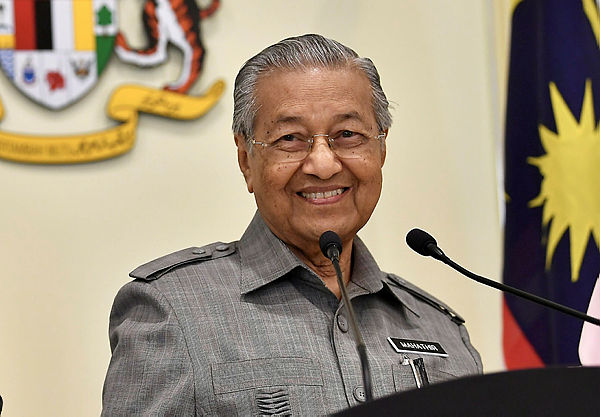PUTRAJAYA: The government will continue looking for businessman Low Taek Jho, or Jho Low, despite the difficulties in carrying out this objective, Prime Minister Tun Dr Mahathir Mohamad said today.
“There are only seven billion people (in the world), so it’s not very difficult.
“We can find a needle in a haystack, and he will be the needle,“ he told a press conference after chairing a meeting of the Special Cabinet Committee on Anti-Corruption here.
Jho Low, identified by Malaysian and United States investigators as the person who played the key role in the billion-dollar 1Malaysia Development Bhd (1MDB) scandal, is believed to have left Hong Kong for an island somewhere near Macau.
An online portal yesterday reported that Jho Low has dismissed The Wall Street Journal (WSJ) report claiming that he had a role in facilitating deals with China to bail out 1MDB in 2016 in exchange for lucrative contracts.
Jho Low, in a statement from his spokesman issued through his lawyers, claimed that the article contained “half-truths” and blamed Dr Mahathir’s administration for it.
Asked about Jho Low’s accusations that it was politically motivated, Dr Mahathir said the fugitive businessman has said that many times before.
“He was politically motivated to steal money,“ responded Dr Mahathir.
On the WSJ report, Dr Mahathir said the government needed to get the documents mentioned in the report before taking any action.
“We need to find the documents first and make use of the documents as proof that this actually happened. At the moment, it’s just a story in the press,“ he said.
Citing minutes from a series of previously undisclosed meetings, the WSJ reported on Monday that Chinese officials told visiting Malaysians that Beijing would use its influence to try to get the United States and other countries to drop their probes of allegations that allies of the then prime minister, Datuk Seri Najib Abdul Razak, and others plundered 1MDB.
In return, the WSJ said, Malaysia offered lucrative stakes in railway and pipeline projects for China’s ‘One Belt, One Road’ programme of building infrastructure abroad.
The WSJ said the deals include the East Coast Rail Link and Trans-Sabah Gas Pipeline projects, which were reported to be financed at an above-market value to generate excess cash for other needs. — Bernama













